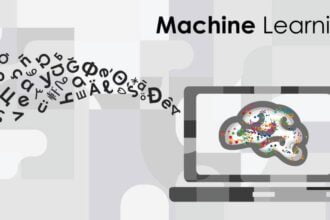I’m a big fan of using machine learning and automated information extraction to improve search performance and generally support information seeking. I’ve had some very good experiences with both supervised (e.g., classification) and unsupervised (e.g., terminology extraction) learning approaches, and I think that anyone today who is developing an application to help people access text documents should at least give serious consideration to both kinds of algorithmic approaches. Sometimes automatic techniques work like magic!
But sometimes they don’t. Netbase’s recent experience with HealthBase is, unfortunately, a case study in why you shouldn’t have too much faith in magic. As Jeff Dalton noted, the “semantic search” is hit-or-miss. The hits are great, but it’s the misses that generate headlines like this one in TechCrunch: “Netbase Thinks You Can Get Rid Of Jews With Alcohol And Salt”. Ouch.
It seems unfair to single out Netbase for a problem endemic to fully automated approaches, but they did invite the publicity. It would be easy to dig up a host of other purely automated approaches that are just as embarassing, if less publicized.
Dave Kellogg put it well (if a bit …
I’m a big fan of using machine learning and automated information extraction to improve search performance and generally support information seeking. I’ve had some very good experiences with both supervised (e.g., classification) and unsupervised (e.g., terminology extraction) learning approaches, and I think that anyone today who is developing an application to help people access text documents should at least give serious consideration to both kinds of algorithmic approaches. Sometimes automatic techniques work like magic!
But sometimes they don’t. Netbase’s recent experience with HealthBase is, unfortunately, a case study in why you shouldn’t have too much faith in magic. As Jeff Dalton noted, the “semantic search” is hit-or-miss. The hits are great, but it’s the misses that generate headlines like this one in TechCrunch: “Netbase Thinks You Can Get Rid Of Jews With Alcohol And Salt”. Ouch.
It seems unfair to single out Netbase for a problem endemic to fully automated approaches, but they did invite the publicity. It would be easy to dig up a host of other purely automated approaches that are just as embarassing, if less publicized.
Dave Kellogg put it well (if a bit melodramatically) when he characterized this experience as a “tragicomedy” that reveals the perils of magic. His argument, in a nutshell, is that you don’t want to be completely dependent on an approach for which 80% accuracy is considered good enough. As he says, the problem with magic is that it can fail in truly spectacular ways.
Granted, there’s a lot more nuance to using automated content enrichment approaches. Some techniques (or implementations of general techniques) optimize for precision (i.e., minimizing false positives), while others optimize for recall (i.e., minimizing false negatives). Supervised techniques are generally more conservative than unsupervised ones: you might incorrectly assert that a document is about disease, but that’s less dramatic a failure than adding the word “Jews” to an automatically extracted medical vocabulary. In general, the more human input into the process, the more opportunity to improve the effectiveness and avoid embarassing mistakes.
Of course, the whole point of automation is to reduce the need for human input. Human labor is a lot more expensive that machine labor! But there’s a big difference between the mirage of eliminating human labor and the realistic aspiration to make its use more efficient and effective. That what human-computer information retrieval (HCIR) is all about, and all of the evidence I’ve encountered confirms that it’s the right way to crack this nut. Look for yourselves at the proceedings of HCIR ‘07 and ‘08. Having just read through all of the submissions to HCIR ‘09, I can tell you that the state of the art keeps getting better.
Interestingly, even Google CEO Eric Schmidt may be getting around to drinking the kool-aid. In an interview published today in TechCrunch, he says: “We have to get from the sort of casual use of asking, querying… to ‘what did you mean?’.” Unfortunately, he then goes into science-fiction-AI land and seems to end up suggesting a natural language question-answering approach like Wolfram Alpha. Still, at least his heart is in the right place.
Anyway, as they say, experience is the best teacher. Hopefully Netbase can recover from what could generously be called a public relations hiccup. But, as the aphorism continues, it is only the fool that can learn from no other. Let’s not be fools–and instead take away the moral of this story: instead of trying to automate everything, optimize the division of labor between human and machine. HCIR.









